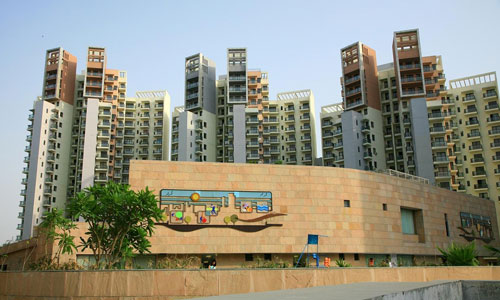3rd of the series
Track2Realty Exclusive
 John Macomber, Senior Lecturer in real estate, Harvard Business School, says, “I am wary of market timing by residential investors. If you need a home and can afford it, buy a home and hold it. Speculative small-scale investing in real estate is championed by financial firms who benefit from activity, but it is a poor vehicle for building personal wealth.”
John Macomber, Senior Lecturer in real estate, Harvard Business School, says, “I am wary of market timing by residential investors. If you need a home and can afford it, buy a home and hold it. Speculative small-scale investing in real estate is championed by financial firms who benefit from activity, but it is a poor vehicle for building personal wealth.”
Anuj Puri, Chairman & Country Head, JLLI maintains that though the Indian residential real estate remains in subdued maintenance mode, but it is certainly not in its death throes. Homes continue to sell. Indians still consider owning a home of their own as the ultimate investment and goal in life. From the corporate world’s C suite down to the back office teams; from the manufacturing sector’s Board of Directors set down to the blue-collar ranks; from the up-and-coming entrepreneur in Mumbai down to the fruit vendor on the streets of Surat, everyone wants a home of their own.
“There are, of course, fundamental reasons for the unrelenting popularity of investing in one’s own home in India. One cannot live in a gold bar. One cannot rent out a stock portfolio, hang a name plate on a mutual fund or state a fixed deposit as address proof. These vehicles may protect from financial disaster, but they offer no shelter from inclement weather. While market conditions fluctuate, the fundamentals of the human condition remain constant. And therefore, for both traditional and practical reasons, the desire and need to own a home is hard-wired into the Indian psyche,” says Puri.
Sachin Sandhir, Managing Director, South Asia, RICS also has a word of caution for the speculators, “Specifically in relation to the land acquisition bill, where developers are looking to acquire new parcels of land, consumers might have to shell out additional capital to purchase property on account of higher land, input and labour costs. In such cases, there might be a possibility that developers will hold off sales till prices appreciate.”
Finally as a reality check on the prophets of dooms day—Are there symptoms that are similar to what eventually led to the 2008 slowdown? “No. The 2008 slowdown was a result of too much leverage at the level of financial companies such as commercial banks, investment banks and non-bank lenders, largely outside India,” asserts John Macomber. “The year 2011 was about political uncertainty in big economies. In practice, both the US and the euro zone have no crisis of solvency and no crisis of liquidity. Their political dithering will slow their economies to the benefit of large emerging economies, including India, China and Brazil, which can expand from internal growth.”





